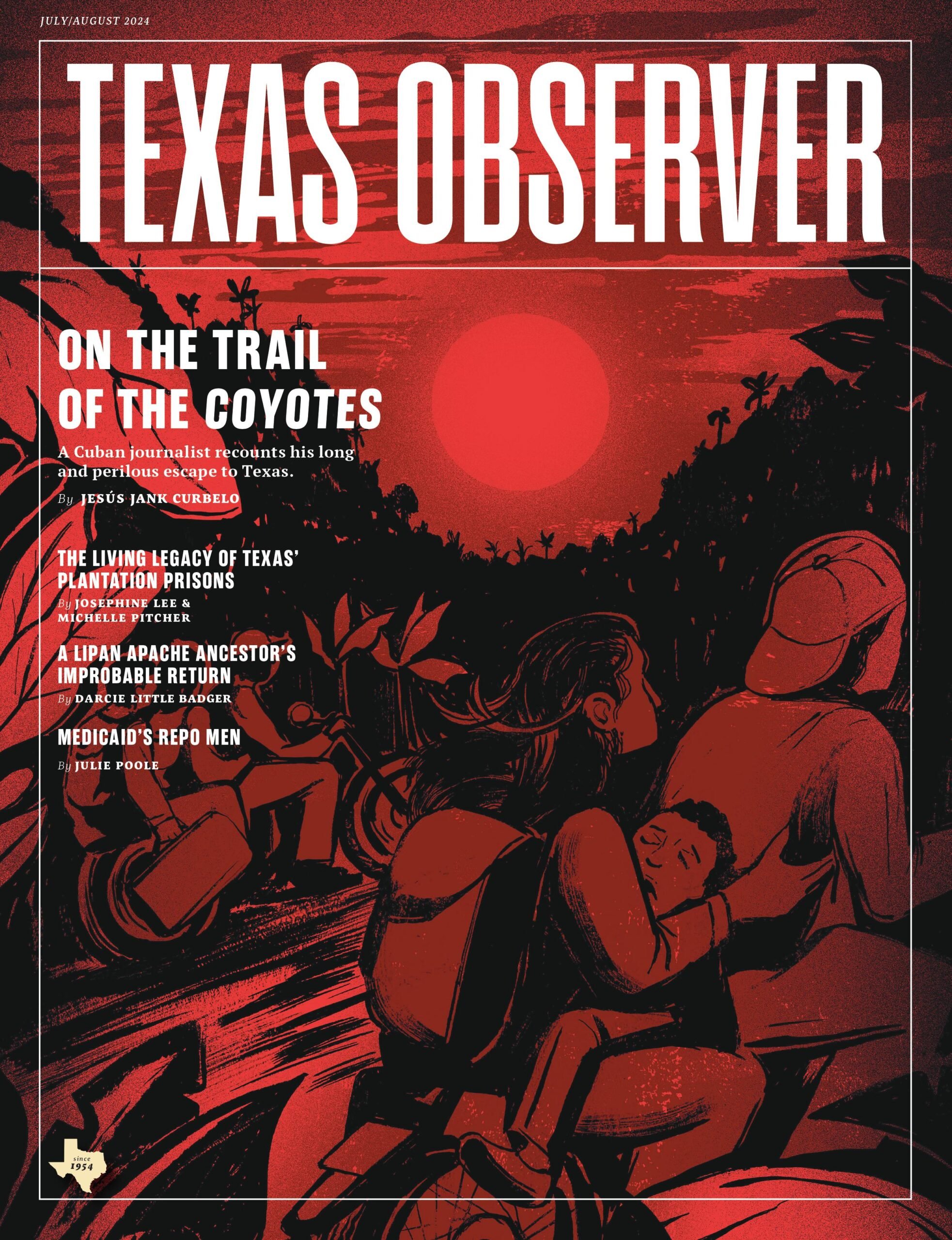Texas Observer readers,
One challenge of practicing journalism over the long haul is the feeling you get when—despite all the bombshell investigations, the longform humanizing features, the television exposés, the biting commentaries, and even the podcast series—you see the same underlying issues or injustices persist. You can start to feel that you’re rewriting the same story, shouting your fact-checked findings into the proverbial void.
In Texas, we’re gritting our teeth through another blistering summer, our only hope that it will be marginally more tolerable than the last, though the long-term trajectory is baked into the atmosphere by past mistakes and malfeasance. After years of halting progress by the immigrant rights movement, a Democratic president is reverting to an asylum crackdown at the southern border for perceived political gain. Donald Trump might be our next commander-in-chief, again, and Ken Paxton is still our attorney general. The governor has largely won his war against rebellious Republicans who dared oppose school privatization, setting up a raid on our most important public institution next legislative session—proving that, even two decades into unified control, the Texas GOP always has something more it can pillage or profane.
But one thing about us journalists? We keep working. In Texas, we may be living in a burning house, but, call us crazy, we’re dialing up the fire chief for comment on our evidence about who lit the match.

On occasion, we reporters get to see our work trigger short-term impact: A law changes, a CEO is fired, a conviction is overturned. Other times, we can see our stories graft onto and advance a larger process of cultural or social change. But, often, we must simply do our work on a sort of faith. We know democracy requires a stream of verified facts, rigorous analysis, and empathetic storytelling; there’s so much beyond our control, but we can at least keep the stream from drying up.
In our July/August print issue, we dive deep into the history of our state’s most intractable problems, we examine the bleeding edge of the latest calamities, we insist on the humanity and value of those who are demonized by our politicians, and we strive to help our readers, and maybe ourselves, see that this state can and must be so much better.
We don’t know what will happen with our stories after we send them out into the world. We simply labor on them (until deadline hits) with a stubborn faith: in journalism, in democracy, in our readers, and—call us truly mad—in Texas.
Solidarity,
Note: Stories from the July/August issue will appear online here. To receive our print magazine, become a member here.


